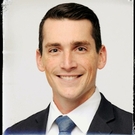Ophthalmology solo practice guru, Dr. Howie Chen, gives you his financial expertise about what you should do with your initial savings.
Our guest author, Howie Chen, M.D.", lays down his commandments on what you should be doing with your initial savings after training. Dr. Chen is a financial wizard and solo practice guru who writes articles for the ultra-useful solobuildingblogs.com
So you’re an attending finally and in your first job. That means you can finally afford a nice car maybe a Beamer or Mercedes, a luxury condo or to buy a house, and eat at fancy restaurants?
So you’re an attending finally and in your first job. That means you can finally afford a nice car maybe a Beamer or Mercedes, a luxury condo or to buy a house, and eat at fancy restaurants?
Wrong. You actually can’t afford to NOT continue to live like a resident. Right now is the most important time to save lots of money. First of all, the money you save now is worth more in terms of time growth. $50,000 invested at age 25 at the typical stock market return of 8% is $1.086 million dollars -- and that’s even without contributing another penny after age 25! But $50,000 invested at age 35 is only worth $503k at age 65.
Furthermore, the more fancy stuff you get the younger you are, the more used to it you’ll get and if you ever have to “go back” it sucks. If you’re used to staying in the Days Inn, the Courtyard by Marriott is a lap of luxury. But if you’re used to the Park Hyatt, the Courtyard is ghetto.
Finally, as Ho Sun has so carefully discussed in our blog, a big reason why he had so much trouble starting up his practice from scratch straight out of residency was because he had nothing. If he worked for a few years and spent all his money he’d still have nothing! But if he had worked and saved up $50,000 for a few years it would’ve been easier to start up and get away from a tyrannical boss -- FREEDOM is priceless!!
Definitely do NOT buy a house! Because most of you reading this (80%) will be leaving your first job and relocating! You pay the real estate agent 6% of what the house is worth when you sell it. How badly would it suck if you stayed in a job you didn’t like because you bought a house and it’s too expensive to move?
If you earn a $170,000 salary, assuming you max out your 401k at $18,000, and get a 4% employer match of $6800, you’ll take home about $4200 per pay check or $109,200 per year. If you live slightly better than a resident say on $50,000 post tax then you’re still saving $59,000 plus $24,600 in your 401k or $83,600 per year. Even if you up your spending to $65,000 per year, you still save $68,600 per year.
Most financial experts recommend putting into your 401k at least the amount to get any employer match, but I highly advocate putting in the entire IRS limit of $18,000. Not only is it a tax break, 401ks provide high asset protection.
You should also put $5500 into a non-deductible traditional IRA to do a backdoor Roth. This can become complicated if you have other IRA accounts. If your 401k plan allows for IRA transfers, this might be a good way to reduce your IRA basis to zero to be able to do a backdoor Roth.
So now you have $23,500 (or with a employer match $30,300) in tax-advantaged, asset-protected accounts that will grow on the average 8% per year. If you are 30 when you’re done with training, the $30,300 will be worth $448k at age 65. Would you rather buy a new car that depreciates, or have a half million dollars at retirement?
If you are in good health, sign up for a high-deductible health plan with a HSA (health savings account). While you’re responsible for the first $5000 or so of your health care with these plans, if you’re healthy you can curbside colleagues. That’s the good thing about being a MD! You can contribute $3400 every year and invest the money in stocks while using post-tax money to pay for health care expenses. There’s a triple tax advantage -- the $3400 is tax deductible, all growth is tax-free, and no taxes on withdrawal as long as it’s used for health care!
So you’ve saved $26,900 to $33,700 so far. The 401k, Roth, and HSA should be invested in low-expense ratio broad index funds like the SP500, total stock market, and total international stock market funds. Note that I did NOT entertain buying individual stocks, gold, or bitcoin.
The next thing I would do would be to pay off any high interest loans that accumulated during residency. Some people would advocate doing this first even before maxing out a 401k, let alone the backdoor Roth and HSA. But my argument is if you’re reading this and have enough discipline to follow what I say, your income will be high enough to pay off any high interest debts in a year or two. But if you delay funding a 401k, backdoor Roth, or HSA since these accounts have annual contribution limits, you lose the opportunity forever. By high interest I mean 6% or over. The stock market averages a 8% return but is much more volatile, so I’d take a “guaranteed” 6% return any day.
Finally, I would save the rest in cash. Everyone needs a six month emergency fund (most disability insurances will have a 90 or 180 day waiting period). Don’t forget, the less you spend, the lower the emergency fund will be. If you spend $50,000 a year, you only need to save $25,000; if you spend $80,000 then you need to save $40,000. This will take longer to save since you’re spending more meaning you have less to save, in addition to the fact that the dollar amount is much higher. Once your pay starts to increase, you have the six months saved, and high interest debts are paid off, then start saving for starting a practice, down payment for a house (I only recommend this once you enter partnership), or paying off student loans if you can’t consolidate to a lower rate.
Believe it or not, there are many attendings 10-15 years into practice that have zero net worth. These are the same people who wind up pushing unnecessary procedures and treatments that line their own pockets rather than benefit the patient. Don’t be one of them. Start early, save your first $50,000 and take it from there.
Want to get more from OphthoQuestions?







Please login to comment.